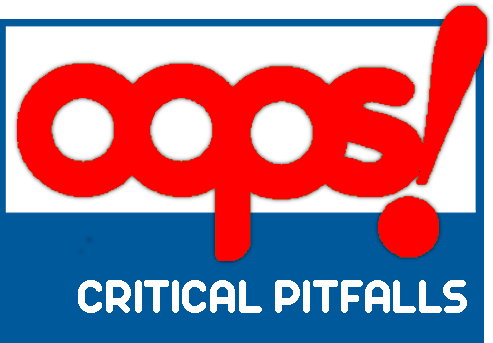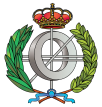Evaluation results
There are three levels of importance in pitfalls according to
their impact on the ontology:
- Critical It is crucial to correct the pitfall. Otherwise, it could affect the ontology consistency, reasoning, applicability, etc.
- Important Though not critical for ontology function, it is important to correct this type of pitfall.
- Minor It is not really a problem, but by correcting it we will make the ontology nicer.
Pitfalls detected:
Ontology elements (classes, object properties and datatype properties) are created isolated, with no relation to the rest of the ontology.
• This pitfall appears in the following elements:
› http://schema.org/Intangible
› http://purl.org/dc/dcmitype/Collection
• This pitfall appears in the following elements:
› http://schema.org/Intangible
› http://purl.org/dc/dcmitype/Collection
Two relationships are defined as inverse relations when they are not necessarily inverse.
• This pitfall appears in the following elements:
› http://comicmeta.org/cbo/series may not be inverse of http://comicmeta.org/cbo/seriesOf
› http://comicmeta.org/cbo/contains may not be inverse of http://comicmeta.org/cbo/inBox
› http://comicmeta.org/cbo/adaptation may not be inverse of http://comicmeta.org/cbo/adaptationOf
• This pitfall appears in the following elements:
› http://comicmeta.org/cbo/series may not be inverse of http://comicmeta.org/cbo/seriesOf
› http://comicmeta.org/cbo/contains may not be inverse of http://comicmeta.org/cbo/inBox
› http://comicmeta.org/cbo/adaptation may not be inverse of http://comicmeta.org/cbo/adaptationOf
This pitfall consists in creating an ontology element and failing to provide human readable annotations attached to it. Consequently, ontology elements lack annotation properties that label them (e.g. rdfs:label, lemon:LexicalEntry, skos:prefLabel or skos:altLabel) or that define them (e.g. rdfs:comment or dc:description). This pitfall is related to the guidelines provided in [5].
• The following elements have neither rdfs:label or rdfs:comment (nor skos:definition) defined:
› http://schema.org/ComicCoverArt
› http://schema.org/ComicIssue
› http://schema.org/IndividualProduct
› http://schema.org/Intangible
› http://schema.org/CoverArt
› http://purl.org/dc/dcmitype/PhysicalObject
› http://schema.org/PublicationIssue
› http://schema.org/Product
› http://schema.org/CreativeWork
› http://purl.org/dc/dcmitype/Collection
› http://schema.org/Periodical
› http://schema.org/VisualArtwork
› http://schema.org/ComicStory
› http://schema.org/ComicSeries
› http://schema.org/PublicationVolume
› http://purl.org/dc/terms/isPartOf
› http://purl.org/dc/terms/hasVersion
› http://purl.org/dc/terms/isVersionOf
› http://schema.org/contributor
› http://schema.org/publisher
› http://purl.org/dc/terms/language
› http://schema.org/creator
› http://purl.org/dc/terms/hasPart
› http://schema.org/issn
› http://schema.org/isbn
› https://bib.schema.org/variantCover
› http://purl.org/dc/terms/date
• The following elements have no rdfs:label defined:
› http://schema.org/Person
› http://xmlns.com/foaf/0.1/Agent
› http://schema.org/Organization
› http://purl.org/dc/terms/identifier
› http://schema.org/url
› http://schema.org/name
› http://purl.org/dc/terms/alternative
› http://purl.org/dc/terms/description
› http://purl.org/dc/terms/title
• The following elements have neither rdfs:comment or skos:definition defined:
› http://schema.org/sku
• The following elements have neither rdfs:label or rdfs:comment (nor skos:definition) defined:
› http://schema.org/ComicCoverArt
› http://schema.org/ComicIssue
› http://schema.org/IndividualProduct
› http://schema.org/Intangible
› http://schema.org/CoverArt
› http://purl.org/dc/dcmitype/PhysicalObject
› http://schema.org/PublicationIssue
› http://schema.org/Product
› http://schema.org/CreativeWork
› http://purl.org/dc/dcmitype/Collection
› http://schema.org/Periodical
› http://schema.org/VisualArtwork
› http://schema.org/ComicStory
› http://schema.org/ComicSeries
› http://schema.org/PublicationVolume
› http://purl.org/dc/terms/isPartOf
› http://purl.org/dc/terms/hasVersion
› http://purl.org/dc/terms/isVersionOf
› http://schema.org/contributor
› http://schema.org/publisher
› http://purl.org/dc/terms/language
› http://schema.org/creator
› http://purl.org/dc/terms/hasPart
› http://schema.org/issn
› http://schema.org/isbn
› https://bib.schema.org/variantCover
› http://purl.org/dc/terms/date
• The following elements have no rdfs:label defined:
› http://schema.org/Person
› http://xmlns.com/foaf/0.1/Agent
› http://schema.org/Organization
› http://purl.org/dc/terms/identifier
› http://schema.org/url
› http://schema.org/name
› http://purl.org/dc/terms/alternative
› http://purl.org/dc/terms/description
› http://purl.org/dc/terms/title
• The following elements have neither rdfs:comment or skos:definition defined:
› http://schema.org/sku
The ontology lacks disjoint axioms between classes or between properties that should be defined as disjoint. This pitfall is related with the guidelines provided in [6], [2] and [7].
*This pitfall applies to the ontology in general instead of specific elements.
*This pitfall applies to the ontology in general instead of specific elements.
Object and/or datatype properties without domain or range (or none of them) are included in the ontology.
• This pitfall appears in the following elements:
› http://purl.org/dc/terms/hasPart
› http://schema.org/creator
› http://schema.org/publisher
› http://comicmeta.org/cbo/artworkType
› http://schema.org/contributor
› http://purl.org/dc/terms/isVersionOf
› http://purl.org/dc/terms/hasVersion
› http://comicmeta.org/cbo/plotter
› http://purl.org/dc/terms/isPartOf
› http://purl.org/dc/terms/title
› http://comicmeta.org/cbo/note
› http://purl.org/dc/terms/date
› http://purl.org/dc/terms/description
› http://purl.org/dc/terms/alternative
› https://bib.schema.org/variantCover
› http://schema.org/isbn
› http://comicmeta.org/cbo/price
› http://comicmeta.org/cbo/isbn
› http://schema.org/url
› http://purl.org/dc/terms/identifier
• Tip: Solving this pitfall may lead to new results for other pitfalls and suggestions. We encourage you to solve all cases when needed and see what else you can get from OOPS!
• This pitfall appears in the following elements:
› http://purl.org/dc/terms/hasPart
› http://schema.org/creator
› http://schema.org/publisher
› http://comicmeta.org/cbo/artworkType
› http://schema.org/contributor
› http://purl.org/dc/terms/isVersionOf
› http://purl.org/dc/terms/hasVersion
› http://comicmeta.org/cbo/plotter
› http://purl.org/dc/terms/isPartOf
› http://purl.org/dc/terms/title
› http://comicmeta.org/cbo/note
› http://purl.org/dc/terms/date
› http://purl.org/dc/terms/description
› http://purl.org/dc/terms/alternative
› https://bib.schema.org/variantCover
› http://schema.org/isbn
› http://comicmeta.org/cbo/price
› http://comicmeta.org/cbo/isbn
› http://schema.org/url
› http://purl.org/dc/terms/identifier
• Tip: Solving this pitfall may lead to new results for other pitfalls and suggestions. We encourage you to solve all cases when needed and see what else you can get from OOPS!
This pitfall appears when any relationship (except for those that are defined as symmetric properties using owl:SymmetricProperty) does not have an inverse relationship (owl:inverseOf) defined within the ontology.
• OOPS! has the following suggestions for the relationships without inverse:
› http://comicmeta.org/cbo/owner could be inverse of http://comicmeta.org/cbo/ownerOf
• Sorry, OOPS! has no suggestions for the following relationships without inverse:
› http://comicmeta.org/cbo/format
› http://comicmeta.org/cbo/copyState
› http://comicmeta.org/cbo/distributedBy
› http://comicmeta.org/cbo/editor
› http://comicmeta.org/cbo/colorist
› http://comicmeta.org/cbo/caption
› http://comicmeta.org/cbo/plotter
› http://comicmeta.org/cbo/box
› http://comicmeta.org/cbo/story
› http://comicmeta.org/cbo/team
› http://comicmeta.org/cbo/language
› http://comicmeta.org/cbo/universe
› http://comicmeta.org/cbo/binding
› http://comicmeta.org/cbo/gutter
› http://purl.org/dc/terms/hasVersion
› http://purl.org/dc/terms/isVersionOf
› http://comicmeta.org/cbo/character
› http://schema.org/contributor
› http://comicmeta.org/cbo/artworkType
› http://comicmeta.org/cbo/object
› http://comicmeta.org/cbo/event
› http://comicmeta.org/cbo/condition
› http://comicmeta.org/cbo/collection
› http://schema.org/publisher
› http://comicmeta.org/cbo/grade
› http://comicmeta.org/cbo/panel
› http://comicmeta.org/cbo/inker
› http://comicmeta.org/cbo/paper
› http://comicmeta.org/cbo/material
› http://comicmeta.org/cbo/coverArt
› http://comicmeta.org/cbo/publicationFrequency
› http://comicmeta.org/cbo/artist
› http://comicmeta.org/cbo/penciller
› http://comicmeta.org/cbo/pageType
› http://comicmeta.org/cbo/genre
› http://comicmeta.org/cbo/edition
› http://comicmeta.org/cbo/coverArtist
› http://comicmeta.org/cbo/encased
› http://comicmeta.org/cbo/boarded
› http://comicmeta.org/cbo/page
› http://comicmeta.org/cbo/related
› http://comicmeta.org/cbo/comicAge
› http://comicmeta.org/cbo/preview
› http://comicmeta.org/cbo/contributor
› http://comicmeta.org/cbo/quality
› http://comicmeta.org/cbo/bagged
› http://comicmeta.org/cbo/cameo
› http://comicmeta.org/cbo/guaranteedBy
› http://comicmeta.org/cbo/attribute
› http://comicmeta.org/cbo/balloon
› http://purl.org/dc/terms/language
› http://schema.org/creator
› http://comicmeta.org/cbo/universeOf
› http://comicmeta.org/cbo/letterer
› http://comicmeta.org/cbo/country
› http://comicmeta.org/cbo/appearance
› http://comicmeta.org/cbo/state
› http://comicmeta.org/cbo/sequence
› http://comicmeta.org/cbo/writer
› http://comicmeta.org/cbo/subject
› http://comicmeta.org/cbo/role
› http://comicmeta.org/cbo/creator
› http://comicmeta.org/cbo/publisher
› http://comicmeta.org/cbo/rating
• OOPS! has the following suggestions for the relationships without inverse:
› http://comicmeta.org/cbo/owner could be inverse of http://comicmeta.org/cbo/ownerOf
• Sorry, OOPS! has no suggestions for the following relationships without inverse:
› http://comicmeta.org/cbo/format
› http://comicmeta.org/cbo/copyState
› http://comicmeta.org/cbo/distributedBy
› http://comicmeta.org/cbo/editor
› http://comicmeta.org/cbo/colorist
› http://comicmeta.org/cbo/caption
› http://comicmeta.org/cbo/plotter
› http://comicmeta.org/cbo/box
› http://comicmeta.org/cbo/story
› http://comicmeta.org/cbo/team
› http://comicmeta.org/cbo/language
› http://comicmeta.org/cbo/universe
› http://comicmeta.org/cbo/binding
› http://comicmeta.org/cbo/gutter
› http://purl.org/dc/terms/hasVersion
› http://purl.org/dc/terms/isVersionOf
› http://comicmeta.org/cbo/character
› http://schema.org/contributor
› http://comicmeta.org/cbo/artworkType
› http://comicmeta.org/cbo/object
› http://comicmeta.org/cbo/event
› http://comicmeta.org/cbo/condition
› http://comicmeta.org/cbo/collection
› http://schema.org/publisher
› http://comicmeta.org/cbo/grade
› http://comicmeta.org/cbo/panel
› http://comicmeta.org/cbo/inker
› http://comicmeta.org/cbo/paper
› http://comicmeta.org/cbo/material
› http://comicmeta.org/cbo/coverArt
› http://comicmeta.org/cbo/publicationFrequency
› http://comicmeta.org/cbo/artist
› http://comicmeta.org/cbo/penciller
› http://comicmeta.org/cbo/pageType
› http://comicmeta.org/cbo/genre
› http://comicmeta.org/cbo/edition
› http://comicmeta.org/cbo/coverArtist
› http://comicmeta.org/cbo/encased
› http://comicmeta.org/cbo/boarded
› http://comicmeta.org/cbo/page
› http://comicmeta.org/cbo/related
› http://comicmeta.org/cbo/comicAge
› http://comicmeta.org/cbo/preview
› http://comicmeta.org/cbo/contributor
› http://comicmeta.org/cbo/quality
› http://comicmeta.org/cbo/bagged
› http://comicmeta.org/cbo/cameo
› http://comicmeta.org/cbo/guaranteedBy
› http://comicmeta.org/cbo/attribute
› http://comicmeta.org/cbo/balloon
› http://purl.org/dc/terms/language
› http://schema.org/creator
› http://comicmeta.org/cbo/universeOf
› http://comicmeta.org/cbo/letterer
› http://comicmeta.org/cbo/country
› http://comicmeta.org/cbo/appearance
› http://comicmeta.org/cbo/state
› http://comicmeta.org/cbo/sequence
› http://comicmeta.org/cbo/writer
› http://comicmeta.org/cbo/subject
› http://comicmeta.org/cbo/role
› http://comicmeta.org/cbo/creator
› http://comicmeta.org/cbo/publisher
› http://comicmeta.org/cbo/rating
The domain or range (or both) of a property (relationships and attributes) is defined by stating more than one rdfs:domain or rdfs:range statements. In OWL multiple rdfs:domain or rdfs:range axioms are allowed, but they are interpreted as conjunction, being, therefore, equivalent to the construct owl:intersectionOf. This pitfall is related to the common error that appears when defining domains and ranges described in [7].
• This pitfall appears in the following elements:
› http://comicmeta.org/cbo/creator
› http://comicmeta.org/cbo/state
› http://comicmeta.org/cbo/owner
› http://comicmeta.org/cbo/ownerOf
• This pitfall appears in the following elements:
› http://comicmeta.org/cbo/creator
› http://comicmeta.org/cbo/state
› http://comicmeta.org/cbo/owner
› http://comicmeta.org/cbo/ownerOf
This pitfall consists in missing the definition of equivalent classes (owl:equivalentClass) in case of duplicated concepts. When an ontology reuses terms from other ontologies, classes that have the same meaning should be defined as equivalent in order to benefit the interoperability between both ontologies.
• The following classes might be equivalent:
› http://comicmeta.org/cbo/Publication, http://comicmeta.org/cbo/Issue
› http://comicmeta.org/cbo/Character, http://comicmeta.org/cbo/Role, http://comicmeta.org/cbo/Quality
› http://comicmeta.org/cbo/Event, http://comicmeta.org/cbo/Issue
• The following classes might be equivalent:
› http://comicmeta.org/cbo/Publication, http://comicmeta.org/cbo/Issue
› http://comicmeta.org/cbo/Character, http://comicmeta.org/cbo/Role, http://comicmeta.org/cbo/Quality
› http://comicmeta.org/cbo/Event, http://comicmeta.org/cbo/Issue
Two classes are defined as equivalent, using owl:equivalentClass, when they are not necessarily equivalent.
• The following classes might not be equivalent:
› http://comicmeta.org/cbo/Issue, http://schema.org/ComicIssue
• The following classes might not be equivalent:
› http://comicmeta.org/cbo/Issue, http://schema.org/ComicIssue
Suggestions or warnings:
The domain and range axioms are equal for each of the following object properties. Could they be symmetric or transitive?
› | http://comicmeta.org/cbo/translationOf
› | http://comicmeta.org/cbo/translationOf
› | http://comicmeta.org/cbo/variant
› | http://comicmeta.org/cbo/storyOf
› | http://comicmeta.org/cbo/storyOf
› | http://comicmeta.org/cbo/storyArc
› | http://comicmeta.org/cbo/storyArc
› | http://comicmeta.org/cbo/collectedIn
› | http://comicmeta.org/cbo/preview
› | http://comicmeta.org/cbo/adaptationOf
› | http://comicmeta.org/cbo/adaptationOf
› | http://comicmeta.org/cbo/reprints
› | http://comicmeta.org/cbo/translation
› | http://comicmeta.org/cbo/universeOf
› | http://comicmeta.org/cbo/universeOf
› | http://comicmeta.org/cbo/collects
› | http://comicmeta.org/cbo/variantOf
› | http://comicmeta.org/cbo/variantOf
› | http://comicmeta.org/cbo/reprintedIn
› | http://comicmeta.org/cbo/translationOf
› | http://comicmeta.org/cbo/translationOf
› | http://comicmeta.org/cbo/variant
› | http://comicmeta.org/cbo/storyOf
› | http://comicmeta.org/cbo/storyOf
› | http://comicmeta.org/cbo/storyArc
› | http://comicmeta.org/cbo/storyArc
› | http://comicmeta.org/cbo/collectedIn
› | http://comicmeta.org/cbo/preview
› | http://comicmeta.org/cbo/adaptationOf
› | http://comicmeta.org/cbo/adaptationOf
› | http://comicmeta.org/cbo/reprints
› | http://comicmeta.org/cbo/translation
› | http://comicmeta.org/cbo/universeOf
› | http://comicmeta.org/cbo/universeOf
› | http://comicmeta.org/cbo/collects
› | http://comicmeta.org/cbo/variantOf
› | http://comicmeta.org/cbo/variantOf
› | http://comicmeta.org/cbo/reprintedIn
According to the highest importance level of pitfall found in your ontology the conformace bagde suggested is "Critical pitfalls" (see below). You can use the following HTML code to insert the badge within your ontology documentation:
References
Lexicalizing Ontologies: The issues behind the labels. In Multimodal communication in the 21st century: Professional and academic challenges. 33rd Conference of the Spanish Association of Applied Linguistics (AESLA), XXXIII AESLA.
Ontology development 101: A guide to creating your first ontology.
Evaluation of Taxonomic Knowledge in Ontologies and Knowledge Bases. Proceedings of the Banff Knowledge Acquisition for Knowledge-Based Systems Workshop. Alberta, Canada.
Style guidelines for naming and labeling ontologies in the multilingual web.
Ontology Evaluation. PhD thesis.
Ontology evaluation. In Handbook on ontologies, pages 251-273. Springer.
Owl pizzas: Practical experience of teaching owl-dl: Common errors & common patterns. In Engineering Knowledge in the Age of the Semantic Web, pages 63-81. Springer.
Weaving the pedantic web. In Proceedings of the WWW2010 Workshop on Linked Data on the Web, LDOW 2010, Raleigh, USA, April 27, 2010.
D7. 1.3-study on persistent URIs, with identification of best practices and recommendations on the topic for the Mss and the EC. PwC EU Services.
“Linked Data - Design issues”. http://www.w3.org/DesignIssues/LinkedData.html
Linked Data: Evolving the Web into a Global Data Space. Morgan & Claypool, 1st edition.
Is your linked data vocabulary 5-star?. http://bvatant.blogspot.fr/2012/02/is-your-linked-data-vocabulary-5-star_9588.html
Enter your ontology to scan:




